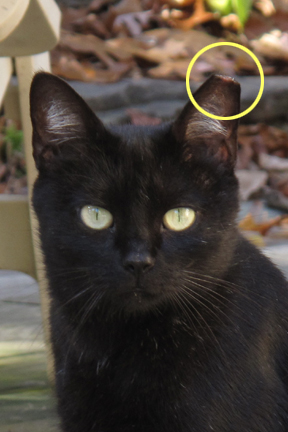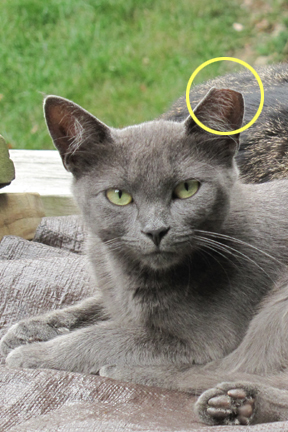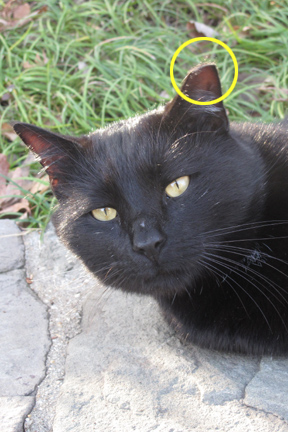


All dogs 4 months or older must be licensed. Having an unlicensed dog is a county class IV misdemeanor punishable by a fine of up to $250. Licensing requirements can be found at http://www.fairfaxcounty.gov/police/animal/animal-control-services.htm.
Dogs are not allowed to roam free in Fairfax County. There are a few exceptions:
If you see a stray running free, you can call the county non-emergency dispatch number, (703) 691-2131.
IMPORTANT: It is now against the law in Fairfax County to tether a dog for more than one cumulative hour during any 24-hour period, unless the dog is under the direct supervision and control of its owner or custodian, regardless of whether the tethered dog has adequate space. A first violation of this law is a class III misdemeanor punishable by a fine of up to $500. (http://www.fairfaxcounty.gov/news2/protecting-pups-new-rules-for-dog-tethering-passed/)
County law requires pet owners to remove any droppings, subject to a $250 fine. More important: Remember that if your pet poops and you don't pick it up, you're leaving it there for the next people who walk by, which can ruin their experience of the neighborhood, not to mention their shoes.
In addition, bacteria from feces (fecal coliform bacteria such as E. coli) in local streams are a significant health concern. Pet waste left on the grass or in the woods makes its way to storm drains every time it rains. Storm drains lead to lakes or streams that ultimately lead to the Occoquan Reservoir and the Potomac Rivers, our drinking water supply. Pet waste may carry disease-causing organisms, which make water unsafe for swimming and more costly to treat for drinking. Pet waste on the ground is ugly and messy. It pollutes our environment even if it is hidden in the bushes, under leaves, or in the woods. Please pick up after your pets. Our health may depend on it.
Information on county regulations regarding vicious and dangerous dogs can be found at http://www.fairfaxcounty.gov/police/animal/dangerous-vicous-dogs.htm.
The Virginia Department of Agriculture and Consumer Services maintains a registry of dangerous dogs at http://www.vi.virginia.gov/vdacs_dd/public/cgi-bin/public.cgi.
You may see at least three known feral cats who visit or inhabit areas of Afton Glen.
Two are females who between them produced three known litters of kittens (a total of 13 kittens) before they could be stopped. (All the kittens have since been adopted into homes.) A third one is a neutered male. All three ferals have been captured, tested negative for feline leukemia and immunodeficiency virus (FL/FIV), spayed/neutered to prevent further breeding, vaccinated for rabies and feline distemper, and then released back to the outdoors because they can't be socialized and aren't fit for adoption.
If you see them, you can recognize them by the fact that their left ear tips have been slightly clipped (see pictures below). This is a common marking technique that veterinarians often perform with feral cats that will be released. It is a signal to everyone that the cat has already been captured and spayed or neutered, and does not need to be captured again. One female (left) is all black with short fur and a long skinny tail; the other female (center) is all gray, small, with short fur and a somewhat stubby tail; and the male (right) is medium large, all black, with a slight white patch on his throat:



These three are all free of rabies and other serious communicable feline diseases. They are shy and non-aggressive, and keep themselves hidden or distanced from most people.
If you have cats, please have them spayed or neutered, and vaccinated for rabies (as required by county ordinance). If they go outside, equip them with collars and name tags, or even subdermal microchips. Keep them in at night to avoid altercations with feral cats or other wildlife, prevent encounters with predators such as wild dogs and coyotes (Fairfax County has both), and avert harmful and costly injuries or the spread of serious diseases.
Rabies is a deadly disease, to both humans and animals. In Fairfax County, the rabies virus has appeared in raccoons, foxes, skunks, bats, and occasionally dogs, cats, and ferrets. More information is at http://www.vdh.virginia.gov/epidemiology/DEE/Rabies/.
Fairfax County Animal Services Division (http://www.fairfaxcounty.gov/police/animal/) operates an animal shelter and conducts animal control. The shelter and animal control officers care for lost, abandoned, abused, or unwanted animals found in the county. Each year, the shelter takes in more than 5,500 pets and 2,000 other animals. The division also has a wildlife biologist who is responsible for county deer and geese management programs.
—Reporting a lost or found pet
—County low-cost spay and neuter program
—Making donations to the shelter.
Human-wildlife contact is common in suburban neighborhoods such as ours. Sometimes observing the wildlife can be enjoyable, but other times the wildlife can get out of hand.
The Virginia Department of Wildlife Resources (DWR) has a web page devoted specifically to controlling nuisance and problem wildlife (https://dwr.virginia.gov/wildlife/nuisance/).
Here are some of its quick tips, if you are having problems:
VDGIF also has more information and related laws regarding nearly 20 specific animal species that can become problems, with links to information on many species that are common around Afton Glen:
This page last updated: 07/01/2021